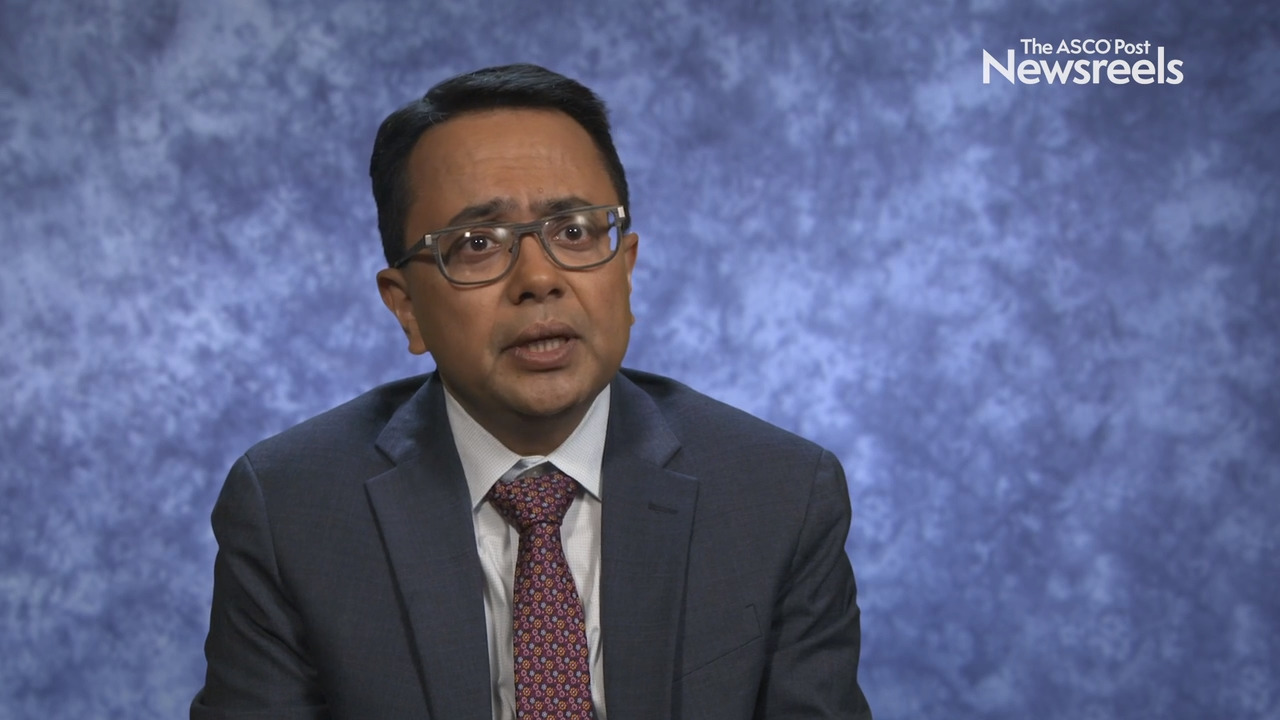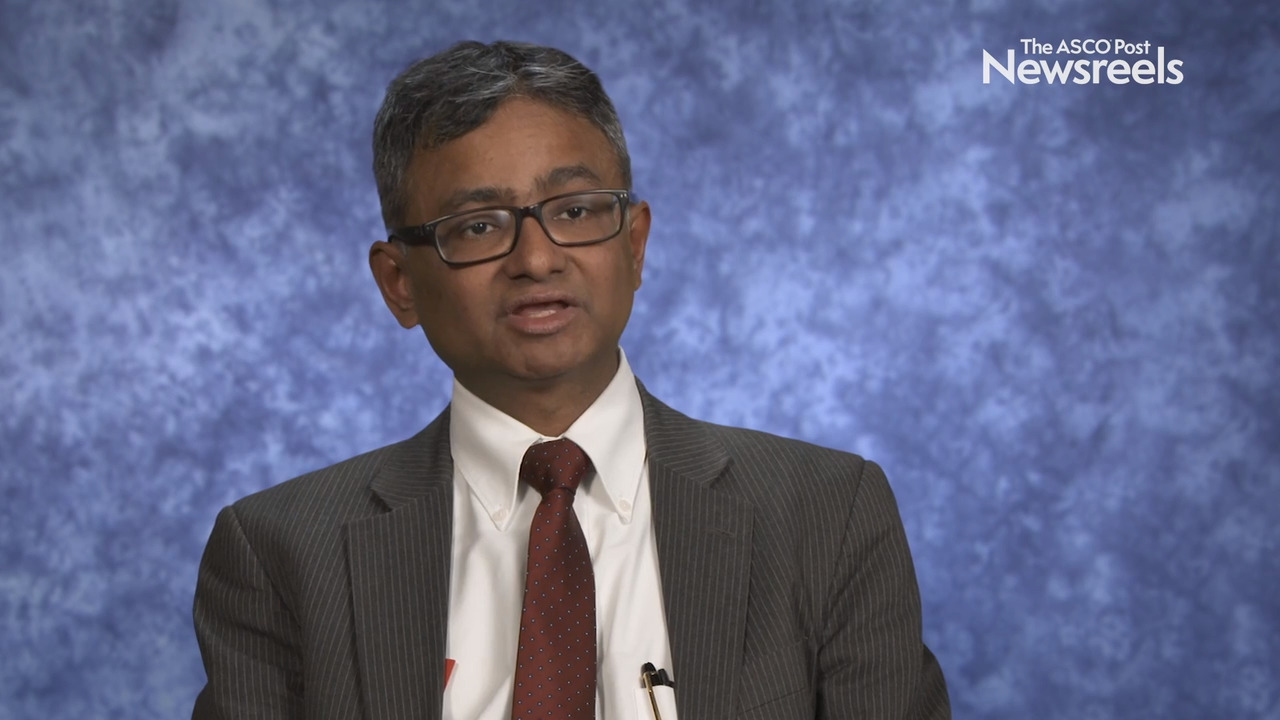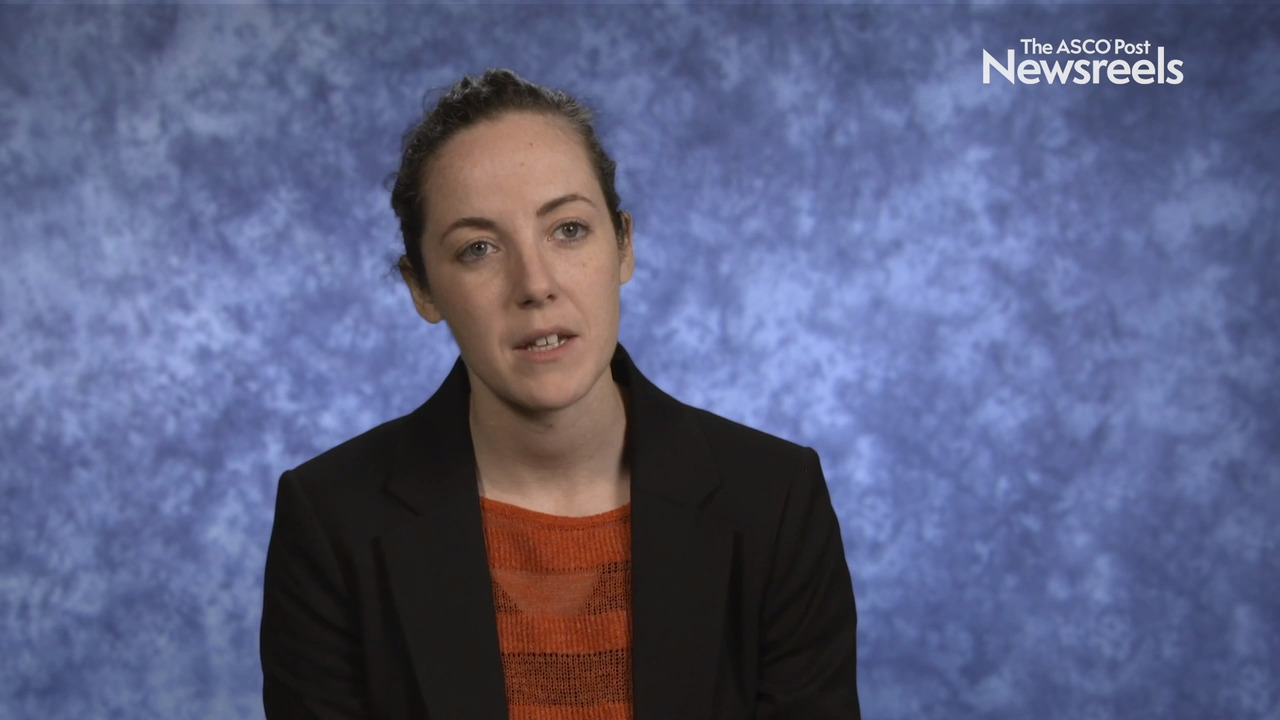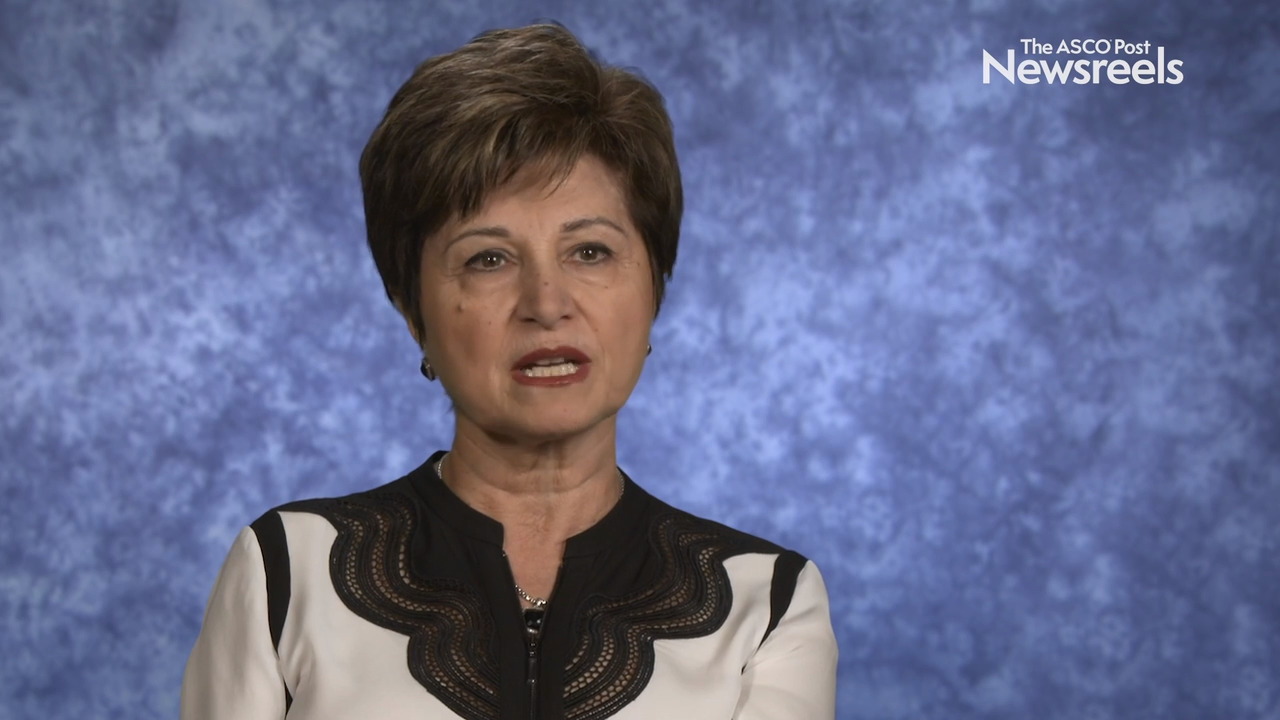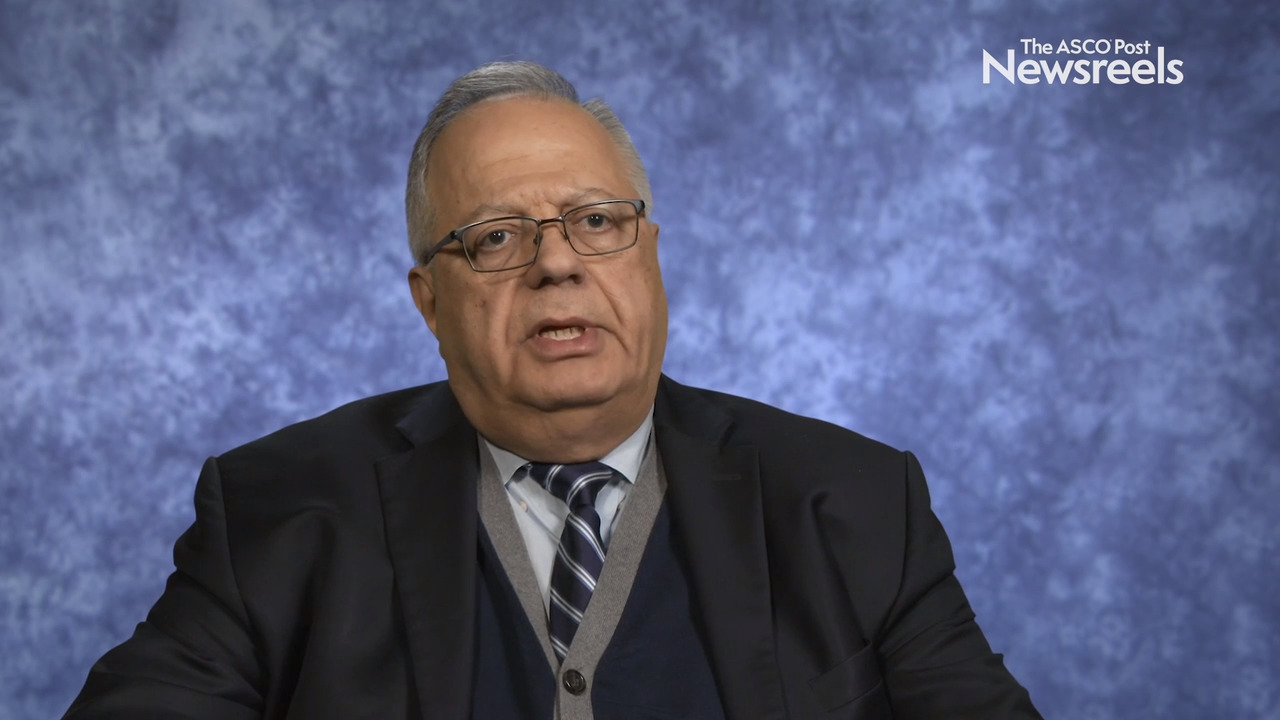Julie N. Graff, MD, on Castration-Resistant Prostate Cancer: Results From KEYNOTE-199 on Pembrolizumab Plus Enzalutamide
2020 Genitourinary Cancers Symposium
Julie N. Graff, MD, of Oregon Health & Science University and Knight Cancer Institute, discusses study findings that show pembrolizumab plus enzalutamide after progression on enzalutamide produced clinical activity and can lead to durable responses, with a manageable safety profile. The phase III KEYNOTE-641 trial will test patients who are enzalutamide-naive (Abstract 15).
The ASCO Post Staff
Neeraj Agarwal, MD, of the University of Utah Huntsman Cancer Institute, discusses trial findings that showed the combination of cabozantinib and atezolizumab had a tolerable safety profile and showed activity in men with metastatic disease. Further evaluation of cabozantinib and atezolizumab is planned in a phase III trial (Abstract 82).
The ASCO Post Staff
Syed A. Hussain, MD, of the University of Sheffield, discusses phase II findings comparing nintedanib or placebo in combination with gemcitabine and cisplatin in locally advanced muscle-invasive bladder cancer. The data showed that adding nintedanib was safe and well tolerated, with a significant improvement in progression-free and overall survival at 1 and 2 years (Abstract 438).
The ASCO Post Staff
Hannah L. Rush, MBChB, of the Clinical Trials Unit at University College London, discusses an analysis of the STAMPEDE trial, which showed that patients treated with abiraterone had higher scores in global quality of life as well as in the physical, social, and role function domains and lower scores for pain and fatigue over the first 2 years than those receiving docetaxel (Abstract 14).
The ASCO Post Staff
Maha Hussain, MD, of the Robert H. Lurie Comprehensive Cancer Center of Northwestern University, discusses the first phase III clinical trial to demonstrate the feasibility of tissue-based genomic testing to preselect men with metastatic castration-resistant prostate cancer for targeted treatment and the superiority of the PARP inhibitor olaparib compared to enzalutamide or abiraterone (Abstract 195).
The ASCO Post Staff
Nizar M. Tannir, MD, of The University of Texas MD Anderson Cancer Center, discusses overall survival and an independent review of response in CheckMate 214 with 42-month follow-up, using first-line nivolumab plus ipilimumab vs sunitinib in patients with advanced renal cell carcinoma (Abstract 609).
